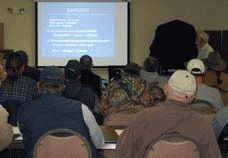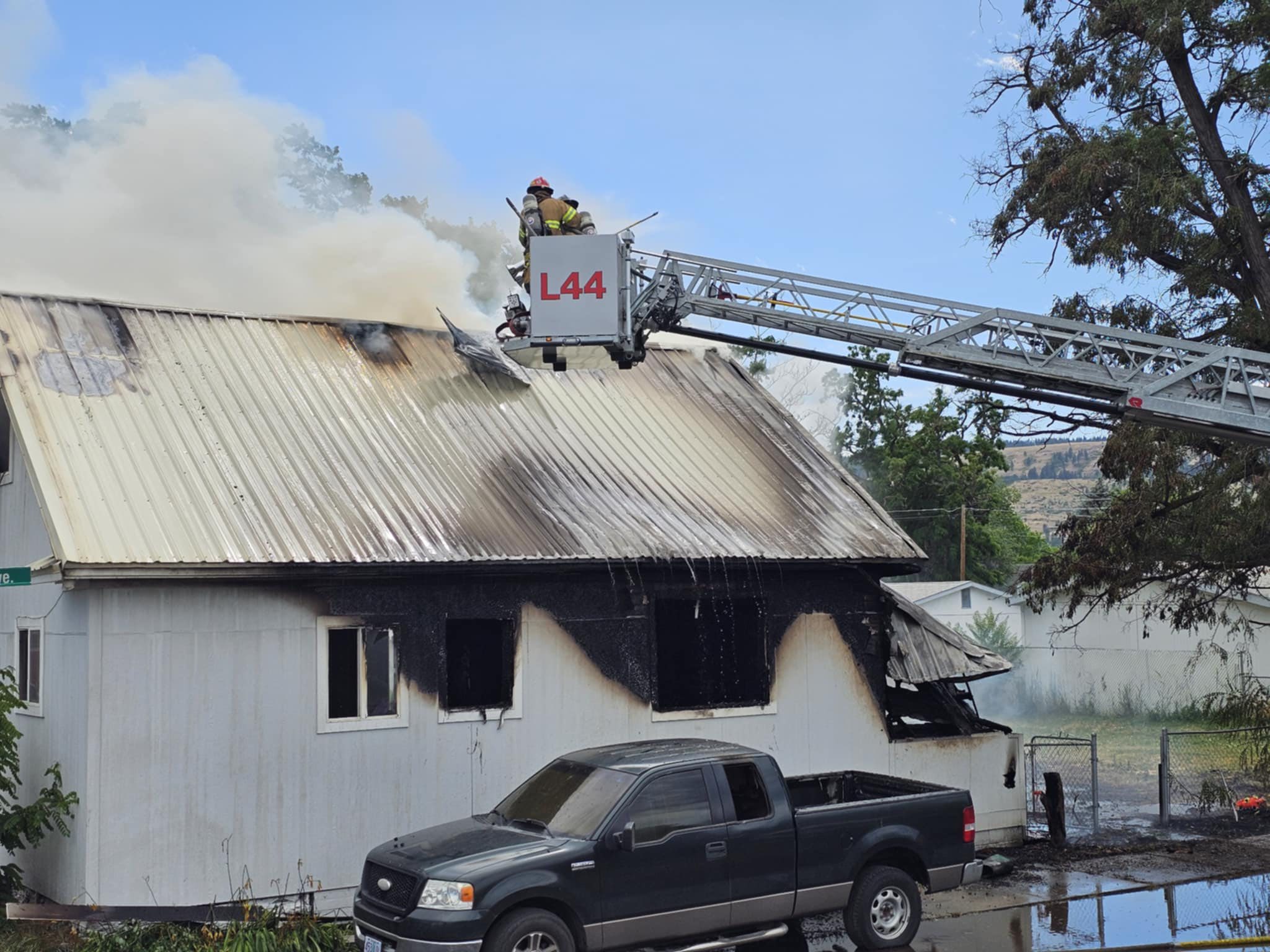CRAMMING FOR EXAMS
Published 12:00 am Saturday, February 24, 2007

- BACK TO SCHOOL: The 2007 Northeast Oregon Pesticide Applicator and Pre-License Training Series was hosted by Oregon State University Extension programs in Union, Wallowa and Baker counties last week. Participants in each county were preparing for certification testing in order to be licensed for purchasing and applying restricted use pesticides. (Observer photos/MARDI FORD).
– Mardi Ford
– The Observer
ISLAND CITY The math problem pops up on the big screen at the head of the classroom. It reads, "You are spraying at 6 miles per hour with a 25-foot boom. You sprayed for one hour. How many acres did you cover?"
Gary Kiemnec, laser pointer in hand, turns from the screen to face the room of about 30 men.
"Now you can see you’ll have to calculate this out by the width which is the 25 feet of your boom by the length. And to get the length, you’ll need to multiply the time sprayed by 6 (miles per hour) by the number of feet in a mile," he begins.
Kiemnec, an associate professor of crop and soil science for the Oregon State University Ag program at Eastern Oregon University, was reviewing "Math for Pesticide Applicators" at the Ag Service Center Monday.
All eyes focus back on the screen as Kiemnec walks the group through an example of rate calculation for pesticide use.
This class is just one session of a three day, tri-county agenda for the 2007 Northeast Oregon Pesticide Applicator and Pre-License Training Series. It is hosted by the OSU County Extension programs in Union, Wallowa and Baker counties.
The purpose, says Darrin Walenta, Union County’s field crops extension agent, is for participants to be able to purchase and use restricted-use pesticides. In order to do that, they must be licensed by the Oregon Department of Agriculture. And to obtain a license, they have to pass some comprehensive testing.
Though there are 10 different types of licenses available and all are listed in the ODA’s 64-page guide for Pesticide-Related Licensing in Oregon those attending this training workshop are primarily interested in obtaining a private or commercial pesticide applicator’s license, or in the recertification of an existing license.
Once obtained, the state license is good for five years. Before it expires, private applicators must acquire an additional 16 hours of credit commercial users need 40 plus take the recertification exam to keep their license valid. It’s a process they go through every five years if they want to maintain the license. Attending one of these full-day workshops equates to four hours of credit.
Kiemnec has been teaching the math section for as long as he can remember " clear back when Gordon Cook was the agent," he says.
As the county’s crop agent, Walenta now organizes these training sessions. Each year he brings in speakers who cover the three basics of math, safety and pesticide labeling as well as an assortment of other subjects the applicants will be tested on.
"We always cover the basics. Then we pick and choose from these other subjects and vary it every year," he says. The "other subjects" he refers to are listed in the 1-inch thick Oregon Pesticide Safety Education Manual, or EM 8850.
The state sells the manual for $22.50 and Walenta recommends it for self-study prior to and following the training sessions, as well as a good reference for every farm office.
"If we tried to cover all this," he holds up the manual, "we’d need at least five solid days instead of one."
Areas of study listed in 20 chapters of the manual range from pesticide law, toxicity, comprehending labels, as well as keeping records and reporting requirements and much more. Under the finally funded and mandatory Pesticide Use Reporting System, all reporting on pesticide use is required to be done electronically. This means computer access and savvy.
"Having to report use online does make it more complicated for those who didn’t grow up with computers and may not use one," Kiemnec says.
"Which means they’ll probably have to hire a grandchild or other family member to do it or hire somebody else. Either way, it costs money and will mean one more impact to the operating budget," Walenta adds.









